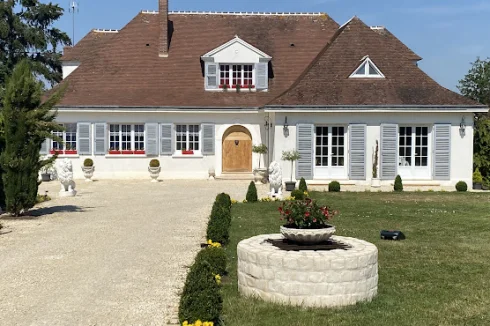Back to School in France
Friday 04 September 2020
Children in France returned to school this month, but twelve schools are immediately closed due to outbreaks of the Covid-19 virus.
Despite a significant increase in Covid-19 cases in recent weeks, schools once again reopened for the new term earlier this week, with the government insisting that the education of children was now a national priority.
Schools have been closed since 16th March 2020 and although some limited reopening began on 11th May, a large majority of parents kept their children at home.
That freedom of choice has now been ruled out by the government, who have stated that attendance is compulsory for all children.
Several associations of parents and teacher unions wanted the return to school delayed by a week, but opinion polls indicated that parents support the reopening of schools, despite concerns they have about the health risks.
The schools have opened under a revised set of health protocols that inevitably tries to reconcile the irreconcilable.
In a change from the previous guidance, whilst physical distancing is to be maintained where possible, it is no longer mandatory, either in the playground or in enclosed spaces. Class sizes are not being restricted, a clear sign that priority is to be given to ensuring all children can attend classes. Wherever possible, children will remain in the same classroom, and teachers will change rooms.
The wearing of a mask at all times where social distancing of 1 metre cannot be maintained is mandatory for pupils attending collège and lycée. That includes periods of recreation but not during sports activities. There is no requirement for children in maternity and primary to wear a mask.
Secondary school pupils will need to wear masks on school transport, and schools have been asked to stagger arrival and departure times wherever possible.
The government have left it to parents to buy the masks, a decision that has caused a great deal of controversy. To assist with the additional costs they will face, the return to school grant (Allocation Rentrée Scolaire - ARS) has been increased by €100 this year, but as it is a means-tested benefit not everyone will receive it.
Staff and teachers must also wear masks, except where they can maintain a distance of at least one metre, and in a revision to the published guidance the government removed the exemption for staff in maternity school.
For lunch periods, wherever possible physical distancing must be maintained by creating new dining spaces and staggering eating times. Classes should also eat together and not be mixed, a proposal that is unlikely to be feasible in many schools.
There is no specific measure to limit the mixing of pupils, although headteachers must try to manage circulation as much as possible, so that it is kept to a minimum.
The protocol also provides for regular hand washing with soap and water, including on arrival at school.
Schools must also undertake disinfection of canteen tables after each service and other important surfaces at least once a day. Floors must also be disinfected once a day. There is to be regular aeration of rooms.
The quarantine of toys or objects has been abandoned. Children will once again be able to access toys and outdoor communal spaces without restriction. It will again be possible for students to lend themselves materials (pencils, erasers...) in class.
Outbreaks
With the high expectation that local outbreaks in schools will occur (scientists and doctors have stated it is inevitable and that the protocol is not strong enough), the government have stated that immediate steps would be taken to test and isolate, and to toughen health protection measures in schools. However, no testing is to be carried out in schools unless an outbreak occurs.
Those measures may involve closure of a class, and ultimately a school or several schools, but not on an automatic basis; it will depend on the severity of the outbreak and the organisation of the schooling, but if a pupil in the class becomes infected it is difficult to see how the class will not be required to isolate.
Indeed, already this week, the government has been forced to close 12 schools, due to outbreaks, which the government have stated originated from outside of the school. Interestingly, the Prime Minister also stated that where three cases of Covid-19 are found in a school, it will trigger automatic closure of the school.
The government have stated that in the event of outbreaks priority will be given to the "continuity of schooling" so, wherever possible, all pupils are to have access to face-to-face classes every week, even if this period of classes may not necessarily correspond to the whole school day, and attendance at these classes would remain compulsory. Where teaching staff needed to isolate then there will be recourse to temporary replacements.
Only in the last resort will a school be closed, and where pupils are required to isolate because of an outbreak, then on-line classes will be provided, and face-to-face classes will be organised in other local buildings.
The government have withheld guidance concerning what would happen in the event a lockdown, but they have stated that on-line classes would be run, for which plans have been put in place. Several hundred hours of lessons have been recorded for transmission and 2,000 computers will be available to local authorities to issue to pupils who do not have one.
Education Priorities
In keeping with the dirigiste system of school education in France, to accompany the health protocols, the government have also issued guidance on the educational priorities for the next academic year.
One of the early tasks is that schools should undertake 'positioning' tests for primary and lower secondary school pupils. The aim of these tests is to discover the impact of the lock-down on children and to identify those in need of additional support - educational, social and psychological.
Going forward, for the first term the teaching priorities will be French and Maths, for which detailed curriculum guidance has been issued to teachers. The national evaluation tests in these subjects for primary, collège and lycée entrants will be maintained, much to the anger of the teacher unions, who consider there are other priorities in a busy schedule that to organise such tests, which they consider will be stressful for pupils.
Between September and December the government will also provide 1,5 million hours of educational support for primary, collège and lycée entrants, available at home and at school, for which thousands of new teaching and support posts have been created. Priority will be given to those pupils needing the greatest support from the previous year.
Foreign language teaching will also be given priority, which the government considers "an essential skill for pupil success."
Other priorities also set out are those concerning information technology, physical education, arts and culture and civics but just how such priorities are to be translated onto the curriculum has not be spelt out.
Thank you for showing an interest in our News section.
Our News section is no longer being published although our catalogue of articles remains in place.
If you found our News useful, please have a look at France Insider, our subscription based News service with in-depth analysis, or our authoritative Guides to France.
If you require advice and assistance with the purchase of French property and moving to France, then take a look at the France Insider Property Clinic.





